Washington, DC, USA —(Map)
The US House of Representatives has voted to approve rules for a public investigation into actions by US President Donald Trump. The investigation will decide if Mr. Trump should be accused of crimes that could result in him being removed as president.
Branches of Government
The constitution (the rules of the country) guides the way the US government works. It divides the government into three parts, each with the power to keep the other parts under control.
One of the jobs of Congress is to make sure the president follows the law. Through impeachment, Congress can investigate (look into) whether the president broke any laws, and, if necessary, remove the president.
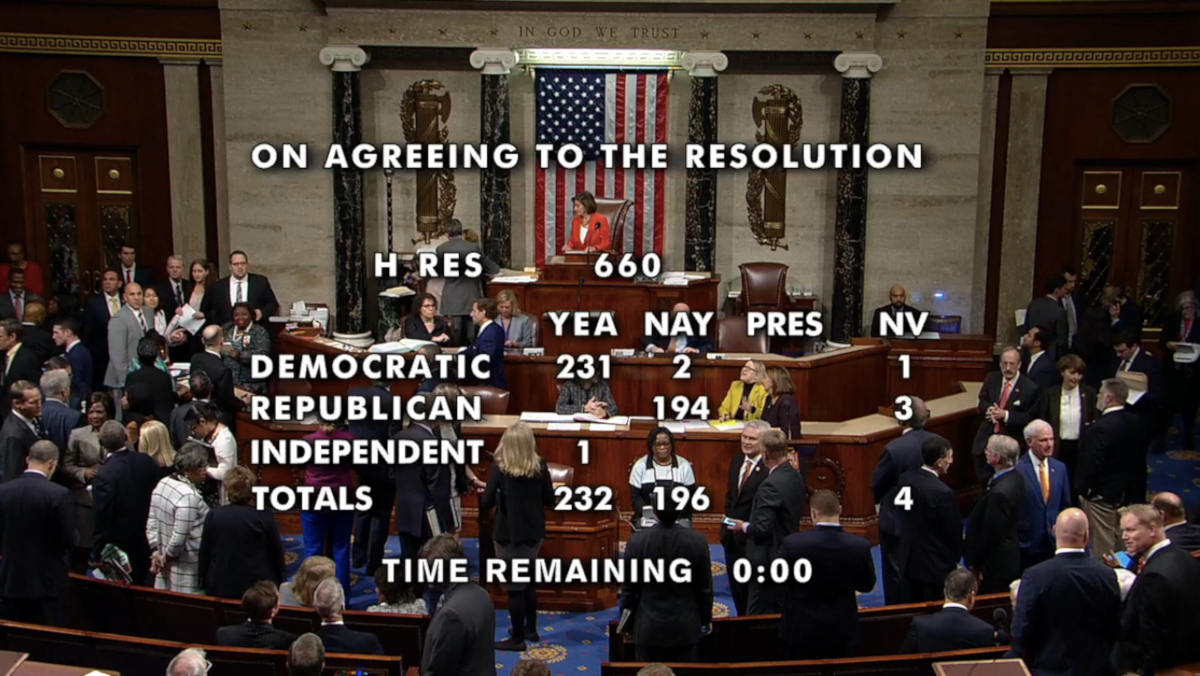
(Source: Screenshot, US House of Representatives.)
The House has been looking into Mr. Trump’s actions since September 24. Members of Congress want to learn whether Mr. Trump used his power as president to force Ukraine to help him find damaging information on Joe Biden, a Democratic politician who hopes to replace Mr. Trump as president.
Yesterday’s vote set out rules for the way the next stage of the investigation will be handled. The vote passed the House 232 in favor and 196 against. All of the Democrats except two voted in favor of the rules. All of the Republicans voted against them.
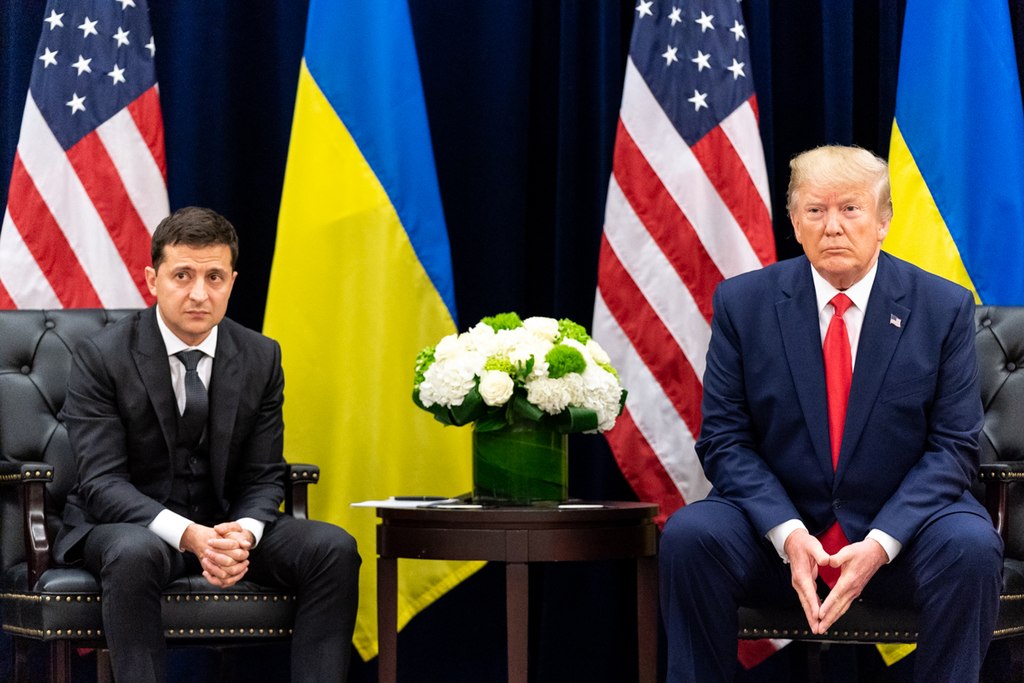
(Source: The White House [Public domain], via Wikimedia Commons.)
The investigation was started after Congress learned about a phone call between Mr. Trump and Ukraine President Volodymyr Zelensky. People who knew about the call suggested that Mr. Trump held back $391 million from the Ukraine to force the country to investigate Mr. Biden and his son, Hunter.
It’s highly unusual for an American president to ask a foreign country to help find damaging information about another American politician.
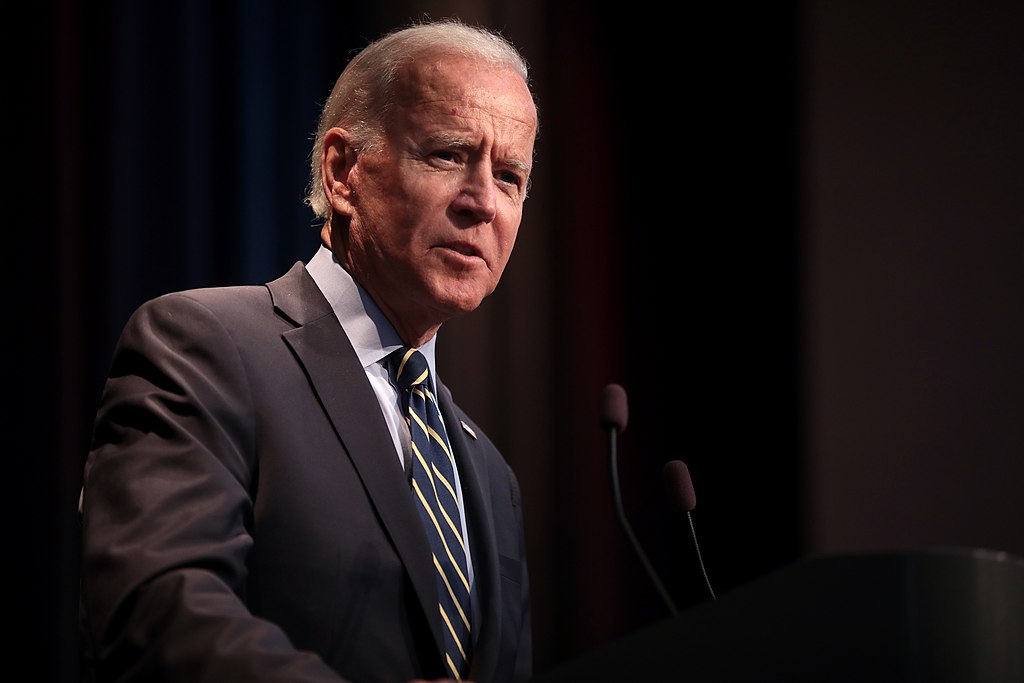
(Source: Gage Skidmore [CC BY-SA 2.0], via Wikimedia Commons.)
It’s now known that Mr. Trump held back $391 million that was meant to help Ukraine buy weapons. It’s also known that Mr. Trump and his personal lawyer, Rudy Giuliani, put pressure on Ukraine’s government to investigate Mr. Biden.
What’s not clear is whether Mr. Trump used the payment to pressure Mr. Zelensky into investigating Mr. Biden. To give or get something in exchange for something else is often described as a “quid pro quo“. If Mr. Trump did this, it would be against the law. Mr. Trump says he did not.

(Source: Alan Santos/PR-Palácio do Planalto [CC BY 2.0], via Wikimedia Commons.)
Since September 24, the House has been asking the White House for more information. Mr. Trump and the White House said that they wouldn’t cooperate with the investigation since the whole House did not vote to investigate.
A small group of representatives – both Democrats and Republicans – have been talking behind closed doors with people who know about the situation. Many Republicans are upset that the sessions are not public. Democrats say they want people to be able to tell their stories without first hearing what other people have said.
In the last month or so, many people have shared information with members of the House and have confirmed much of the story.
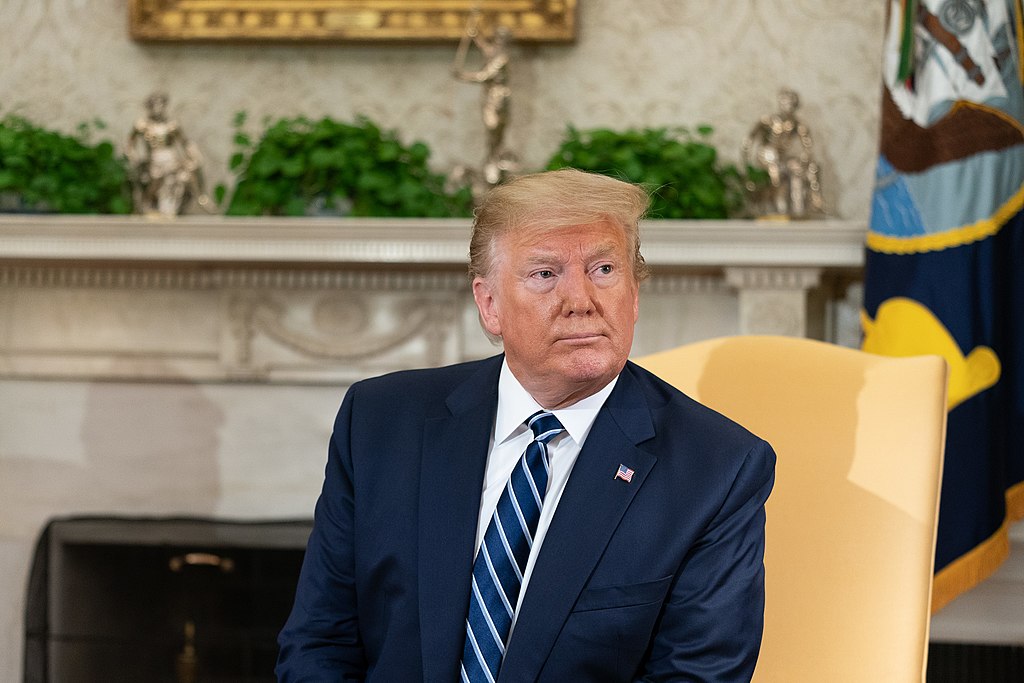
(Source: The White House [Public domain], via Wikimedia Commons.)
Yesterday’s vote set up the rules for the next step of the investigation, which will be carried out in public. That means everyone will be able to hear the same information that the representatives hear.
Adam Schiff, a Democrat, is in charge of the investigation. Mr. Schiff and Republican Devin Nunes will lead the questioning.
The rules allow Mr. Trump to defend himself. He and his lawyers will be allowed to ask questions and call other people to talk to Congress during the investigation.
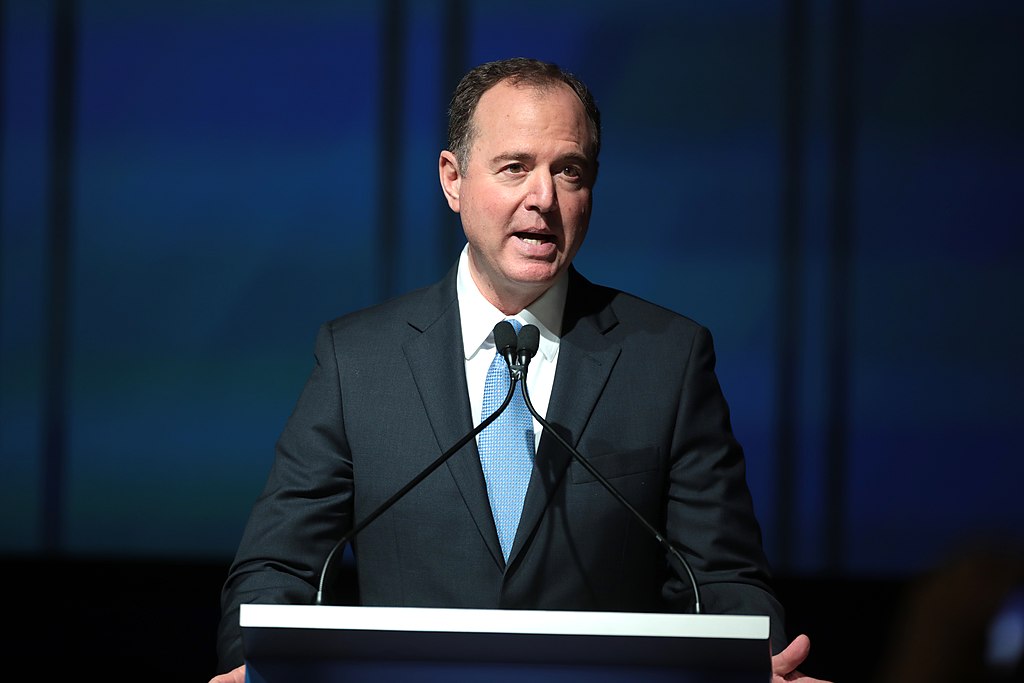
(Source: Gage Skidmore, [CC BY-SA 2.0], via Wikimedia Commons.)
It’s not clear whether the White House will begin to cooperate with Congress, now that the whole House has voted.
The public questioning is expected to begin on November 11.
How Does Impeachment Work?*
Impeachment is like a trial carried out by Congress.
After careful investigations, a small group of House members can list the possible charges against the president. These are called the Articles of Impeachment. The House then talks about the charges and votes on whether the president should be charged or not.
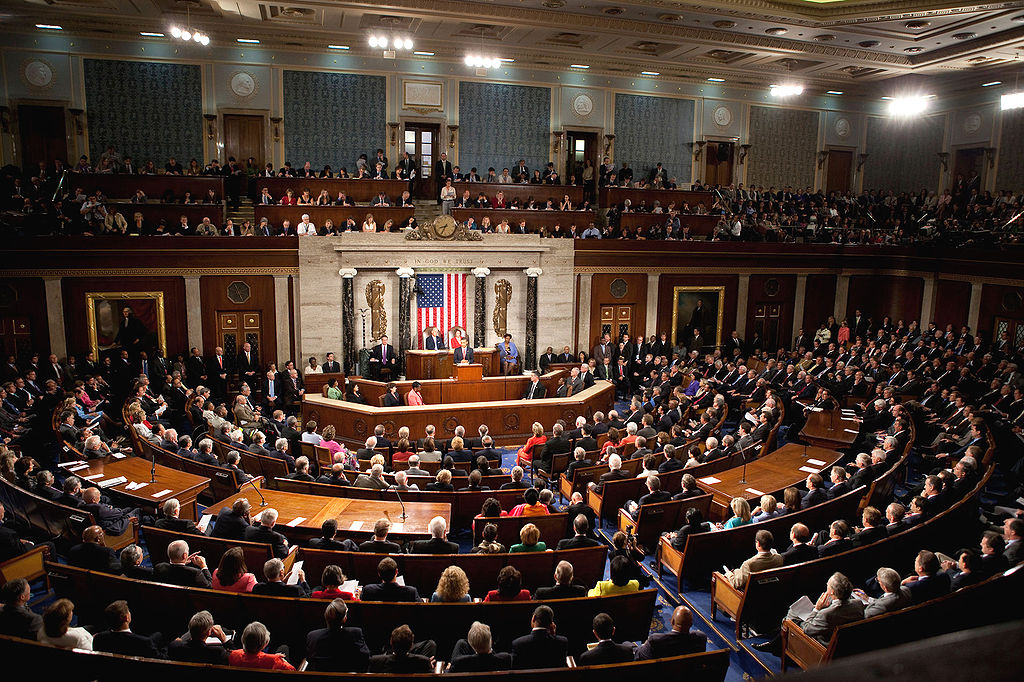
(Source: Lawrence Jackson [Public domain], via Wikimedia Commons.)
If the House votes to charge the president, there would be a trial in the Senate. If two-thirds of the Senate vote that the president is guilty, he could be removed from office.
*Right now, Mr. Trump is just being investigated. He is not currently being impeached.
😕
This map has not been loaded because of your cookie choices. To view the content, you can accept 'Non-necessary' cookies.
